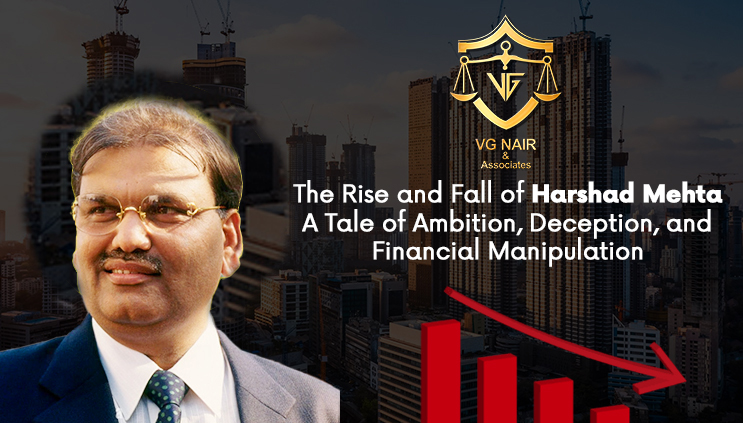The Rise and Fall of Harshad Mehta A Tale of Deception and Financial Manipulation

Introduction
Harshad Mehta, born on July 29, 1954, in Mumbai, hails from a humble middle-class background. Growing up, he developed a keen interest in the stock market, a fascination that would later drive his meteoric rise in the world of finance. Mehta's journey began modestly as a clerk in a brokerage firm, but his sharp instincts and aggressive trading strategies quickly set him apart from his peers. By the late 1980s, as India began to open its economy, Mehta seized the opportunity to make a name for himself, earning the moniker “The Big Bull” for his ability to drive up stock prices and create market euphoria.
The schemes and manipulations
Harshad Mehta's ascent was fueled by a series of manipulative schemes that capitalized on the inefficiencies of India's banking system. One of his most notorious tactics involved the issuance of uncollateralized bank receipts, which he used to secure large sums of money that he then funneled into the stock market. This technique, coupled with circular trading practices, allowed Mehta to artificially inflate stock prices, creating an illusion of market prosperity. Companies like Associated Cement Company (ACC) saw their stock prices skyrocket, with ACC's share price soaring from ₹200 to nearly ₹9,000 in a short period.
The Unraveling of the Scam
Mehta's seemingly unstoppable success came to a sudden halt in 1992 when investigative journalist Sucheta Dalal exposed the massive securities scam that he had orchestrated. Dalal's investigation revealed that Mehta had been siphoning funds from banks using fake bank receipts, creating a financial bubble that was destined to burst. When the scam was uncovered, it triggered a systemic collapse in the Indian stock market, leading to widespread panic and a loss of investor confidence. The fallout was catastrophic, with the Indian financial system left in tatters and countless investors facing ruin.
Legal Consequences
The exposure of Harshad Mehta's scam led to a significant crackdown on financial malpractices in India. Mehta was arrested and faced multiple charges of fraud, though he was ultimately convicted of only four crimes during his lengthy nine-year trial. He was sentenced to five years in prison, but his legal battles continued until his untimely death from a heart attack in 2001. While Mehta's conviction and subsequent demise marked the end of his reign as “The Big Bull,” the consequences of his actions reverberated through the Indian financial system for years to come.
Conclusion
Harshad Mehta's story is a cautionary tale of ambition unchecked by ethics and the devastating impact of financial manipulation. His fraudulent practices exposed the vulnerabilities in India's financial oversight mechanisms, leading to significant reforms aimed at enhancing transparency and accountability in the market. The Securities and Exchange Board of India (SEBI) was empowered to prevent similar scams from occurring in the future.
